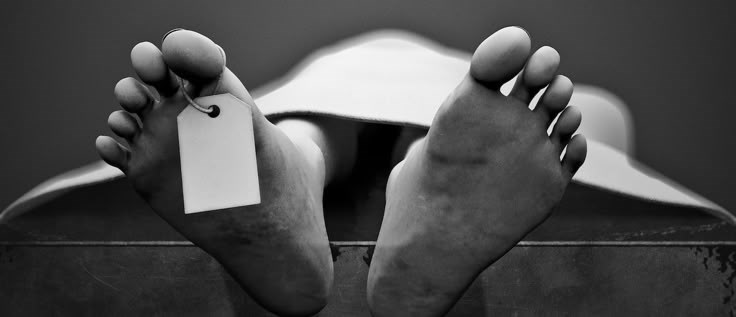
03-Jul-2025 , Updated on 9/8/2025 9:43:02 PM
What happens when we die?
Brain Function Cessation Occurs
Biological death occurs when the brain stops functioning. This consists in complete loss of all brain remains, including all vital brainstem functions. Awareness and sensory perception and consciousness end straight away. Key brainstem reflexes that regulate breathing do not work anymore. The breathing will halt without a machine. Electroencephalogram (EEG) control shows electrocerebral silence. Irreparable loss of higher brain functions and the centers of autonomic control signal definite death of integrated life. This is an everlasting condition.
Bodily Decomposition Process Begins
Right after death, the process of decomposition of the body starts. Internal enzymes begin to break down cells by process of autolysis. Simultaneously, bacteria of the gastrointestinal tract multiply uncontrollably, which provokes putrefaction. When these processes act together, they produce gases very fast leading to visible signs of bloating and typical greenish discoloration of the skin in 24-48 hours. This is followed by liquefaction of tissues and slippage of skin by the action of the enzyme and bacteria. Enhancing conditions in the blood vessels under the skin produce marbling due to sulfhemoglobin staining. The resultant accumulation of gases at some point of time pushes fluids through body orifices. This order is the ultimate definition of biological continuing in the wake of death.
Afterlife Beliefs Remain Diverse
Humanity has completely different perceptions concerning life on the other side. The significant religious traditions offer different patterns: Abrahamic religions (Judaism, Christianity, Islam) generally outline the reward or punishment in the next world depending on the actions on earth. Dharmic beliefs (Hinduism, Buddhism) hold reincarnation cycles that are controlled by good deeds (karma) with the ultimate goal to attain freedom (moksha, nirvana). Typical animist and indigenous faiths may have ancestral ghosts existing in the natural world. Those whose views are secular and attributed to scientific materialism claim the consciousness ends permanently upon death. Such extreme diversity is still evident in the world on deep cultural and philosophical differences.
Grief Impacts the Living
The unanswered question about what happens after death leaves the living with deep sorrow. This bereavement is in the form of emotional suffering, loss of direction and intense sadness. The loss directly causes survivors to be in a lot of pain because of not knowing whether death is complete or not. It is a pain that makes people face their death. The consequence changes their world perspective and everyday life even after many years have passed since the loss. The grieving lives the reality of a burden.
Legacies Shape Future Generations
Biological existence ends with physical death. But still there can be influence through legacy. The legacies play a great role in cultivating the future generations long after the departure of the individual. It is a kind of influence that is shown in a physical contribution: scientific innovation, works of art, or institutions that exist. Worth just as much are intangible legacies: values that are passed on, ethical systems handed down, as well as initiated social campaigns or knowledge imparted. The inheritances are the source of life that continues through later generations. The contribution of individuals directly defines the intellectual, cultural and moral assets available to the successors. Legacy continues to have effect conclusively past the period of living.

Content Writer
Hi, I’m Meet Patel, a B.Com graduate and passionate content writer skilled in crafting engaging, impactful content for blogs, social media, and marketing.
Comments
Join Our Newsletter
Subscribe to our newsletter to receive emails about new views posts, releases and updates.
Copyright 2010 - 2026 MindStick Software Pvt. Ltd. All Rights Reserved Privacy Policy | Terms & Conditions | Cookie Policy